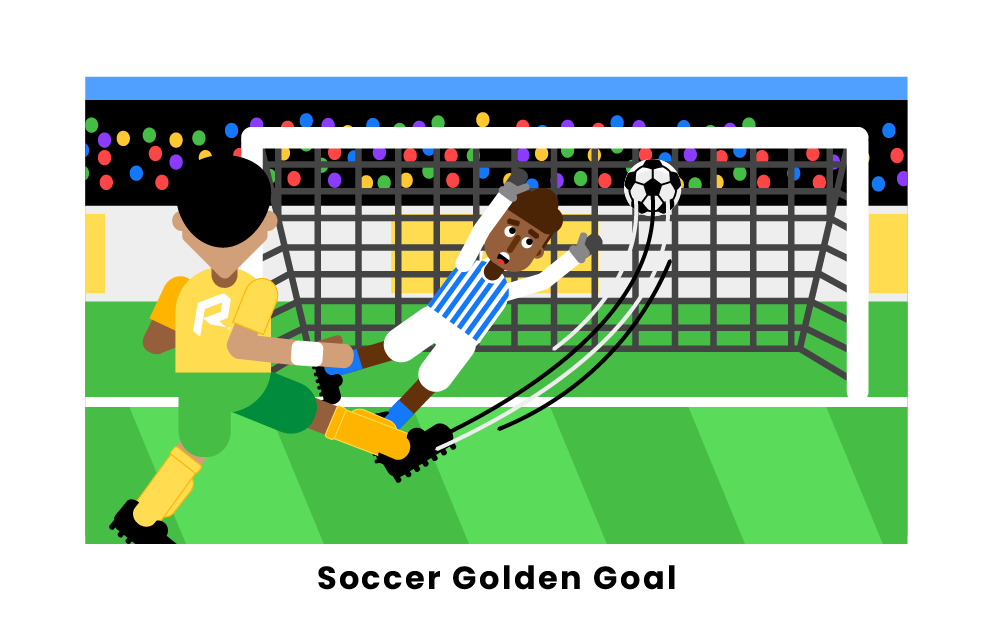
If you're trying to make soccer more attractive to kids, here are some youth soccer quotes to help. Albert Einstein's inspirational quote about soccer is perhaps the most powerful. Einstein was both a genius at physics and a highly perceptive person about life. His words are particularly applicable to teaching youth soccer and kids in general. These sayings are sure to inspire your players to improve their skills and play the game with passion. We've compiled a collection of youth soccer quotes from Einstein's life and other famous thinkers.
Motivational soccer quotes
If you have kids who love soccer, then there are many motivational quotes for youth soccer players you can share with them. The sport is incredibly enjoyable and there's something very positive about being part of a team. These quotes are applicable to any area of life and can help people get the most enjoyment from the sport. These quotes will engage your mind and help you to be more productive. Read on to learn more about the best motivational quotes for youth soccer.

A famous athlete can be the inspiration for a motivational quote about youth soccer. Mike Ditka is a Hall of Famer and former NFL coach. Albert Einstein is another inspirational quote about youth soccer. The famous sports psychologist Albert Einstein believed that play is the best way to learn, and this quote could be helpful for youth soccer coaching. It also shows the importance of teamwork. Encourage children to play and work together to make their game better.
Definition of soccer quotes
To encourage your children to excel, you can use soccer quotes. These quotes are very relevant for youth soccer and other sports. Building trust with your team is as simple as making them feel good about themselves. Setting them up for success will inspire them to improve themselves even further. They will also be able to focus on the game by saying things such as "Pass the ball", "TEAM FIRST" and similar phrases. These are the best soccer quotes for youth. They will stimulate the mind and will also engage the will.
This quote is timeless. It is important to be positive and confident in your thinking. When you are unsure about your performance, your body will reflect this apathy and insecurity. Thus, you must instill confidence in your players to play their best. As hesitant bodies are more susceptible to injury, confidence is essential. Therefore, you must always encourage your players to practice with confidence. You will learn more about the game by practicing more.
Meaning of football quotations
One of the most powerful Youth Soccer quotes is "Play like you were born to play." This saying is used by all coaches. It applies not only to the sport, but to every aspect of your life. It is possible to be a leader and help the team grow, but it is better to encourage your teammates to work together. Youth soccer can also benefit from the TEAM principle. It stands for "Team First." It teaches children that working together is the best way to improve.

Motivational soccer quotes are a great way to get a player into a routine, which means getting them to the gym or on a brisk run. They are also excellent for instilling the concept of hard work and dedication. These sayings can help young players achieve their goals in a competitive society. How do these sayings prove to be so effective? These are just a few examples.
FAQ
What is a corner kicked in soccer?
Corner kicks are when the ball is kicked from the side of the field into the goal area. They are usually taken from players who have been on the side (or wing) of a pitch. The goalie runs towards the penalty box and takes the shot. Corner kicks are exciting because they can lead to scoring opportunities.
What does "A" in soccer refer to?
The letter A stands for Association Football. This is the official name of football. The game's name, association, comes from the fact it was created in England by Oxford University students.
What are the main types of soccer played?
There are four main types of soccer: soccer (soccer), futsal soccer (futsal), beach soccer and indoor soccer.
The most popular form of soccer is called "football" or association football. It is played between two teams of 11 players on a field divided into three sections: an attacking area, a defensive area, and a neutral zone. Each player wears a unique number and can only play one part of the field at any given time. Except for cleats, players can wear any type or footwear. There are no offside regulations. However, defenders must not handle the ball unless the attacker is directly involved. The goal of the match is to score goals by getting the ball through the goalkeeper and into the opponents' goal. The team with most goals scored is the winner.
Futsal is a version of football played indoors. Each team consists of five players. There are no offside rules. Each goal is worth one point. Matches last 20 minute per quarter with five-minute breaks.
Beach soccer is an adaptation to traditional soccer. It allows players to substitute grass for sand. Because of its safety, beach soccer is becoming more popular.
Indoor soccer is played in a stadium or gymnasium. Teams consist of 9 players each and there are offside rules. Goals must be set at least 10 meters apart and are worth 2 points. Matches last 30 minutes per period with 3-minute breaks between periods.
What is the difference between soccer & football?
Football and soccer are very similar sports. Both involve kicking the ball through a narrow opening called a goal. However, soccer requires players to pass the ball while running instead of just kicking the ball. Soccer has smaller balls than football.
What are the main types of soccer ball?
There are three major types of soccer balls: outdoor, indoor and training. Indoor soccer balls are used during practice sessions. Outdoor soccer balls can withstand rain and wind. Specially made for children, training balls are available.
How can you score a goal for soccer?
Soccer is all about getting the ball past the defense of your opponent and into their own goal. The ball is considered a goal once it enters the goal. Soccer games award points for goals.
What does an attacker do in soccer?
They are often the most skilled passers on the pitch. They get the ball to midfielders or forwards who then distribute it to other players. They are agile and fast and can score many goals in a match.
Statistics
- They are not just good at dribbling because they are talented alone, but because they put in 100% effort during every practice. (coachtube.com)
- After hosting an entertaining World Cup finals in 1994, the United States possessed some 16 million football players nationwide, up to 40 percent of whom were female. (britannica.com)
- The Laws of the Game do not specify any player positions other than goalkeeper, [74] These positions are further subdivided according to the area of the field in which the player spends the most time. (en.wikipedia.org)
- The word "soccer" is a British invention that British people stopped using only about 30 years ago, according to a new paper by University of Michigan professor Stefan Szymanski. (businessinsider.com)
- Even with the new issuance, control of the club will be retained by the Glazer family as they will retain 67% of B shares which have voting power, so little will likely change in the general approach taken to the finances of the club. (sites.duke.edu)
External Links
How To
How to play Soccer
You need to be able to play soccer well. These skills should always be improved. You should practice them daily. Follow these steps to learn how you can play soccer well.
-
Practice dribbling. Dribble around the field until you get comfortable with it. Practice dribbling by doing it in five minute increments. You can increase the time to 10 minutes once you are comfortable with dribbling. You can continue practicing this technique each day.
-
Practice passing. Practice passing the ball in front of you and behind you. It is important to correctly pass the ball to the person in the available space. Don't throw too many passes. It's much better to direct the ball to the player who is in need. This will help you save energy as well as keep your body warm.
-
Practice heading. To head, you must place the ball exactly into the net. You must practice positioning yourself to achieve this goal. Place your face in front of the goal line. Next, bend forward slightly to place the ball under your nose. Next, raise your head towards the top-left corner of the net. Your eyes should be directed straight ahead. Then, get up and release the ball.
-
Try to tackle. Tackling, which is the most difficult technique to master, can be very frustrating. This skill can make football more exciting when it is mastered. Begin by covering your chest and shoulders with your hands. Don't try to go lower. Also, remember to keep your arms close to your body. Two players are better at tackling each other. One player acts as the defender while the other attacks. The attacker must be tackled as soon the attacker passes the defender.
-
Learn to shoot. You need to practice shooting. Find a place where you can shoot comfortably (e.g. The goal is near your target. Focus on your form. Now, hold the ball between both your hands. Keep it far from your body. Point your toes up and bend your knees. You can shoot the ball by moving your wrist in a circular motion. Make sure to aim for the corner in the bottom left of the goal.
-
Run. Running is another skill you need to learn. Slowly build speed and start slow. Running should not be used for attacking, it can cause injury to your muscles. Instead, help your teammates by running towards the goal.
-
Practice kicking. Kicking is a skill that can be learned quickly, but can also be difficult. You need to strengthen your core, legs and core to kick correctly. One leg at a a time, place both your feet together. Slowly kick with your heels the ball towards you.
-
Do it again. This skill is vital to your success as a player. Dribbling allows you to control the pace of the game. Without it, the opposing team would have no trouble catching up to you or even overtaking you. Consistency and consistency are the keys to mastering dribbling. You should not change how you dribble daily. Stay true to your strengths.
-
Free kicks are available for practice. Free kicks are usually delivered after a foul or when the goalkeeper commits a mistake. Free kicks let you score goals without even having to play the full match. It is a good idea to aim for the corner of the goal. Remember to use your instep and your heel.
-
Practice defending. Defending is all about positioning. When playing defense, make sure you stay close to the opponent's player. You can block the opponent's path to prevent him scoring if he gets the ball. Always keep your safety in mind.